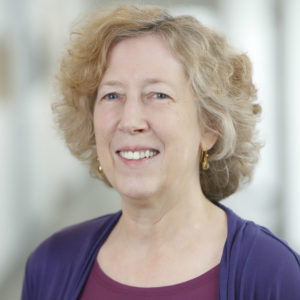Commentary on Parshat Terumah (Exodus 25:1 – 27:19)
Not so very long ago, I was an attorney with an environmental law practice when I heard a rabbi teach that to find one’s true calling, perhaps one should be working on the thing that they felt was most in need of repair in the world. I gasped, as I had come to believe that the reason humans so thoughtlessly, even cruelly, hurt other humans (and themselves, and the earth) was that we had no real sense of who we really are, nor of Divinity listening, guiding and loving us. Before long, I could not deny to myself that while the law was interesting, my heart cried for me to do the spiritual work that would help to heal this gap in awareness. So, I uprooted myself from my position, left everything I knew, and began the long years of study to be a rabbi. Friends were amazed; they asked how I was going to pay for this. When I told them I would sell my house, they were aghast. But I was happy; I was following my heart.
Parshat Terumah contains a blueprint for experiencing God’s presence. We were instructed to build a sanctuary, the mishkan, in the wilderness. When completed, God promised to dwell within us (Exodus 25:8). God tells Moses to have the Israelite people bring gifts for God of the many items needed to build the mishkan – precious metals, jewel-colored yarns, precious stones. But Moses was only to accept the items from “kol ish asher yidabenu libo,” each person who was impelled, incited, by their heart to make the offering (Exodus 25:2). In order to have God’s presence dwell within us, we needed to be acting from the pull of our hearts. Not from a feeling that we should be giving. And we needed to give only those particular gifts which our hearts impelled us to give.¹
Sign up to receive Torah from T’ruah in your inbox each week.
Following our hearts is just as crucial today. Among the scores of critical social justice and human rights issues, climate change crises, political issues, how are we to decide what work to do? Many ignore the pull of their hearts, favoring instead what their mind tells them. Others become paralyzed from being overwhelmed at choosing among so many critical needs and causes. But the message in Terumah is that what brings us into Divine presence is following the pull of our hearts. In fact, I would say this is what it means to be an eved HaShem, serving God.
“Ivdu et HaShem b’simcha” – Serve God in joy – (Psalm 100:2) begins a popular niggun (musical prayer). But the idea of being a servant of God, of doing God’s work, is not so popular these days. It’s not attractive, because it has taken on the connotation of giving up one’s own desires and will. Being an eved HaShem might even feel frightening. After all, Moses was said to be an eved Hashem (Deuteronomy 34:5) and that model is a bit overwhelming. Yet maybe this work is actually much in keeping with our own desires – the pull of our heart. That is how we are to determine the work we are to do. And once we are serving God by doing the work of our heart, then we will truly experience joy in serving.
Find more commentaries on Parshat Terumah.
 R. Shalom Noah Barzofsky, the Slonimer Rebbe (20th century, Israel), explains in his Torah commentary that since the creation of the human, no two persons have been alike. Each comes into the world with a special purpose, a task that is their own, letaken – to fix, to repair – the world. No one can fix what is someone else’s tafkid – their work in the world. God gives each the traits they need and enables their hands to accomplish the repair that is their work. (Netivot Shalom, Commentary on Lech Lecha)
R. Shalom Noah Barzofsky, the Slonimer Rebbe (20th century, Israel), explains in his Torah commentary that since the creation of the human, no two persons have been alike. Each comes into the world with a special purpose, a task that is their own, letaken – to fix, to repair – the world. No one can fix what is someone else’s tafkid – their work in the world. God gives each the traits they need and enables their hands to accomplish the repair that is their work. (Netivot Shalom, Commentary on Lech Lecha)
This does not mean that it will be easy but that we will be drawn to that which we are meant to do, and we will have the ability to do that work. How to discern what that is? As this Torah portion tells us, we follow the pull of our hearts. This is what we are to choose, in concert with divine will, to do in this lifetime. That is being an eved HaShem, God’s servant. May we all be blessed to discern, and then follow, the message of our hearts.
Rabbi Ora Weiss is continually delving ever deeper to find as much meaning and truth as is present in Torah. She brings the research and results to a series of classes that she teaches in the Boston area..
¹This is not to minimize the importance of the tzedakah we are commanded to give, like the half-shekel of two Torah portions from now, but this terumah is must come from the heart because it is our essential spiritual purpose in the world.

